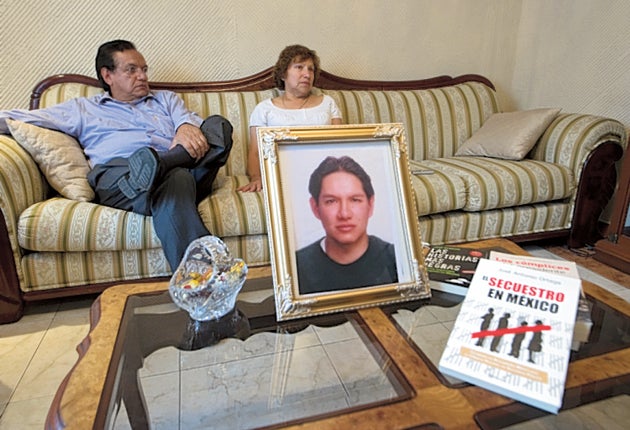Wealthy Mexicans turn to tracking devices as kidnap rate soars

When kidnappers seized the former Mexican presidential candidate Diego Fernandez de Cevallos last year, one of the first things they did was slice a tiny tracking device from his arm.
There is a growing demand among Mexico's wealthy for technology they believe will keep them safe in the kidnapping centre of the world. One company supplying the satellite-enabled implants, Xega, based near Mexico City, claims to have seen orders rise by 40 per cent in the past 24 months.
But the device failed to prevent Mr Fernandez de Cevallos' brutal abduction, and his ordeal lasted another seven months before he was eventually released (apparently after his family paid a hefty ransom), leading security experts to warn that the trackers may do more harm than good.
Armand Gadoury, managing director of the Virginia-based security intelligence firm Clayton Consultants, which has seen its Mexico business double since the start of 2010, told The Independent that the implants only work with a repeater, about the size of a mobile phone, outside the victim's body. "The truth is that that would be one of the first things to be removed from the victim in the event of a kidnap," he said. "The technology is just not there right now."
Josh Miller, head of the British company Control Risks in Mexico, added that the chips gave a false sense of security, while also confirming to kidnappers that their victim was wealthy enough to be worth hanging on to, and possibly even upping ransom demands.
Both experts insisted that there was no substitute in financially motivated kidnappings for maintaining calm and informed communications with the kidnappers, whose demands were usually rational, unlike the politically inspired hostage-taking prevalent in the Middle East.
Kidnapping statistics are notoriously unreliable, with an estimated 80 per cent of all cases never officially reported. However, Mexico is thought to have overtaken Colombia in 2005 as the world's kidnapping capital in absolute numbers. According to Mr Miller, Mexico still topped the rankings in 2010, followed closely by Nigeria.
The reticence on the part of victims' families to report kidnappings is particularly easy to understand in Mexico, where corrupt police are frequently involved in organised crime.
Mexico's kidnapping numbers are swelled by so-called "express kidnaps", in which taxi passengers are spontaneously targeted, with several armed accomplices of the driver piling into the taxi and the victim being held for several hours or days and forced to take money from cash machines. Their families may also be contacted for a small ransom, usually less than £2,000.
But the rich and powerful in Mexico, such as Mr Fernandez de Cevallos, also fall prey to highly sophisticated gangs, often linked with cocaine cartels, which may have had them under surveillance for months. Often, bodyguards and other staff are implicated.
Kidnapping is now so common in Mexico that it has even spawned a new crime, "virtual kidnapping", in which a gang attempts to extort a ransom by conning family members into thinking that a loved one, who is in fact unharmed and free, has been kidnapped.
Xega was unavailable for comment.
Join our commenting forum
Join thought-provoking conversations, follow other Independent readers and see their replies
Comments
Bookmark popover
Removed from bookmarks